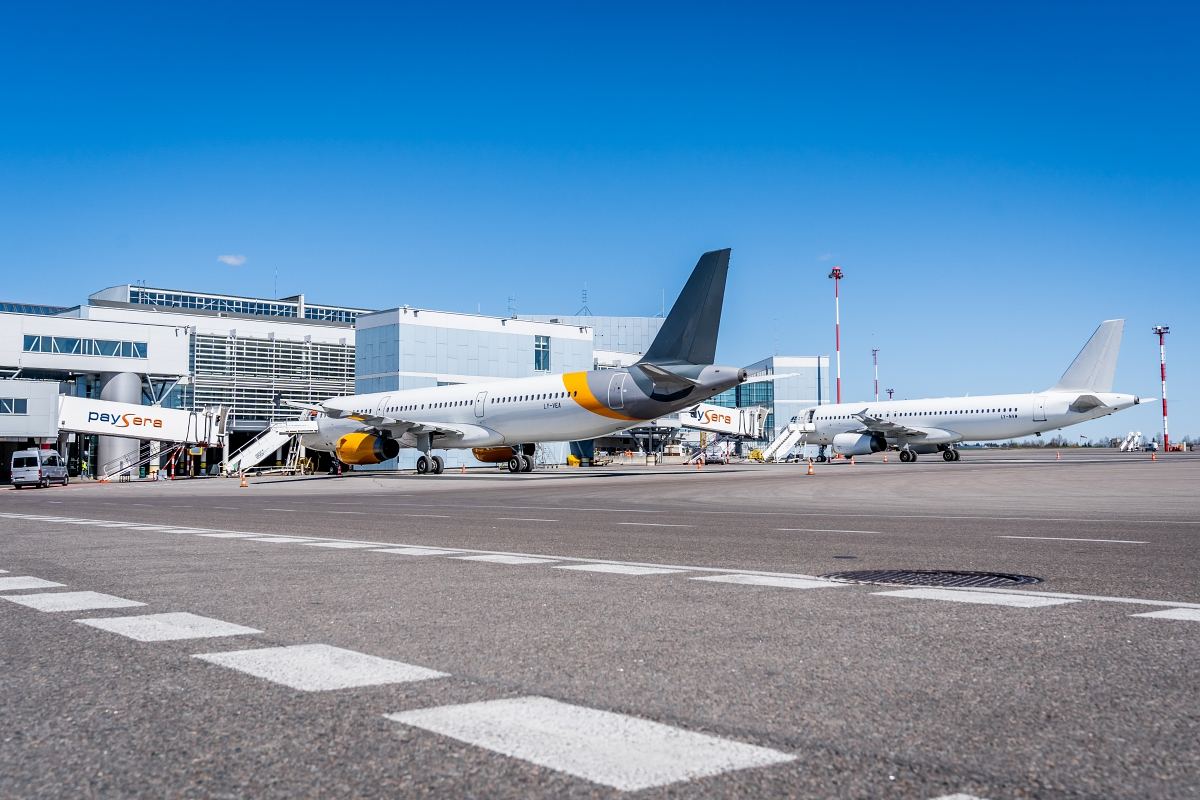Reconstruction of Vilnius Airport aerodrome is moving towards the end

The largest infrastructure reconstruction project in the history of Vilnius Airport, which has been intensively carried out for three years at Vilnius Airport aerodrome, is moving towards the end. The reconstruction is expected to be completed by the end of this year. The completion of all the works, the most important of which are the reconstruction of the new northern apron and the extension of Taxiway F, will increase the efficiency of aircraft traffic management on the apron, reduce CO2 and particulate emissions, and reduce the overall electricity consumption of the airport.
Dainius Čiuplys, Head of the Operations and Infrastructure Department of Lithuanian Airports, says that the implementation of sustainable solutions in major infrastructure upgrades is a priority.
“Responsible and sustainable development is something we have been committed to for a number of years, and we believe that with the help of modern infrastructure, we will achieve the desired breakthrough in sustainability and a significant reduction in CO2 emissions much sooner than the targets set in the European airports’ programme “Net Zero”,” says D. Čiuplys.
The total value of the Vilnius Airport aerodrome reconstruction project is more than €36 million (excluding VAT). Around 40% of the programme’s work is financed by investment from European Union funds. Most of the works were carried out by the contracting company “Kauno Tiltai”, while the rest of the reconstruction programme was carried out by the company “Fegda”.
What’s been done: essential environmental work
One of the most important parts of the overall reconstruction of Vilnius Airport aerodrome is the construction of the new northern apron. The northern apron has a new asphalt pavement, parking markings, a monitoring system, low-energy lighting and more efficient surface water collection. The renovation of the northern apron and the installation of new asphalt pavements will improve the manoeuvrability safety of aircrafts, while reducing noise pollution, aircraft CO2 and particulate emissions.
The reconstruction of Taxiway F and its extension parallel to the runway will have a significant impact not only on the efficiency and safety of operations, but also on the reduction of CO2 emissions, which will allow aircraft to reach the required apron position faster.
It is estimated that upgrading the lighting system at the airfield alone will save around 20% of electricity. Specialised, aircraft ground power units (GPU) have been installed at various locations on the apron, which will also help to reduce the need for, and thus the CO2 emissions of, aircraft servicing vehicles.
The construction of an aircraft de-icing wastewater recycling plant, for which the necessary technical solutions are also almost complete, is planned for 2022. It is planned that in the future, used aircraft de-icing materials (collected liquid) will be collected and recycled.
The reconstruction of the two taxiways in the southern part of the airport, by creating a parallel taxiway next to the existing runway, will reduce both aircraft taxiways and CO2 emissions by around half.
en.delfi.lt
LEAVE A REQUEST FOR A FREE CONSULTATION
UAB InLegal PRO
Успешный бизнес в Европе с нуля: регистрация и продажа фирм, вид на жительство (ВНЖ), правовое сопровождение, бухгалтерские услуги. Юридические и финансовые консультации.
Условия и правила предоставления услуг
Политика конфиденциальности
Код предприятия: 304291346
НДС код: LT100011233910
Пр. Конституции 12-221, Вильнюс
Литва, LT-09308
Пн. – Пт.: с 8:00 до 17:00




